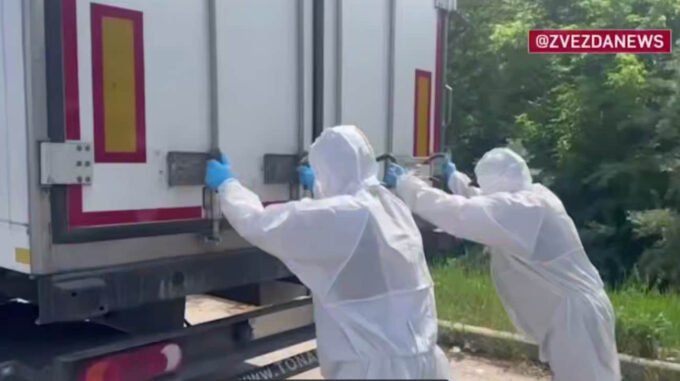The Russian propaganda machine has once again activated its information operation, attempting to shape public perception of an expected victory and lay the groundwork for future political and military steps

The main instrument of this campaign has become video materials that supposedly confirm the delivery of bodies of fallen Ukrainian soldiers scheduled for exchange. However, Ukrainian officials have identified these images as part of a carefully planned information provocation carried out by Russian special services. Andriy Yusov, Deputy Head of the Coordination Staff for the Treatment of Prisoners of War, firmly refuted the claims of Russian propagandists in a comment to "Ukrainska Pravda," once again emphasizing that the video circulated by the Russian side was not shot at the site of the upcoming exchange but much earlier — in Russia, under completely different conditions. According to Yusov, these frames have purely propaganda purposes and are part of a disinformation campaign aimed at discrediting Ukraine, as well as creating artificial pressure on the Ukrainian negotiation delegation ahead of important exchange procedures. "This is another element of an outright informational provocation aimed at undermining trust and destabilizing the negotiation process," Yusov stated. He emphasized that the timing of the beginning of repatriation activities was agreed upon as early as Tuesday with representatives of the Russian Ministry of Defense and is scheduled to occur according to the established timetable next week. Despite this informational provocation, preparations for the exchange are ongoing, and, according to him, Ukraine expects a positive outcome very soon. What preceded this information game? As early as last week, Russian media and pro-Russian Telegram channels published a statement by Vladimir Medinsky, head of the Russian negotiation team, claiming that the first batch of bodies of Ukrainian soldiers had already been delivered to the exchange area in special refrigeration units. This message quickly spread on Kremlin propaganda channels, and videos showing the refrigerating units later appeared in Telegram channels that actively support the Kremlin. The Russian side also did not overlook accusing Ukraine of an "unexpected" postponement of the exchange, allegedly delaying the process of handing over bodies. According to Russian propagandists, the Ukrainian delegation purportedly failed to appear at the designated time and place, supposedly violating the agreements. However, within the Coordination Platform for the Treatment of Prisoners of War, this version was rejected, emphasizing that everything had been coordinated and that the Ukrainian side had provided lists for the exchange, while the Russian side submitted documents that did not comply with the agreements. Ukrainian officials currently await further steps from the Russian side and insist that the process is proceeding according to all approved plans, and any delays from their side are yet another element of information warfare. They also note that Ukraine has already submitted all the necessary lists and documents and hopes for a quick and positive conclusion to this important procedure. At the same time, Ukrainian diplomatic and military structures emphasize the need to remain vigilant and critical of any informational statements, as Russia uses this information warfare to intensify political and psychological pressure. Overall, the situation around the prisoner exchange and the bodies of fallen Ukrainians remains tense, with Russian propagandistic tools continuing to employ various methods to achieve their goals. Ukraine, on the other hand, insists on the legality and transparency of the process and continues collaborating with international partners to maximize the exclusion of disinformation tactics aimed at discrediting Ukraine or sabotaging important humanitarian efforts.

